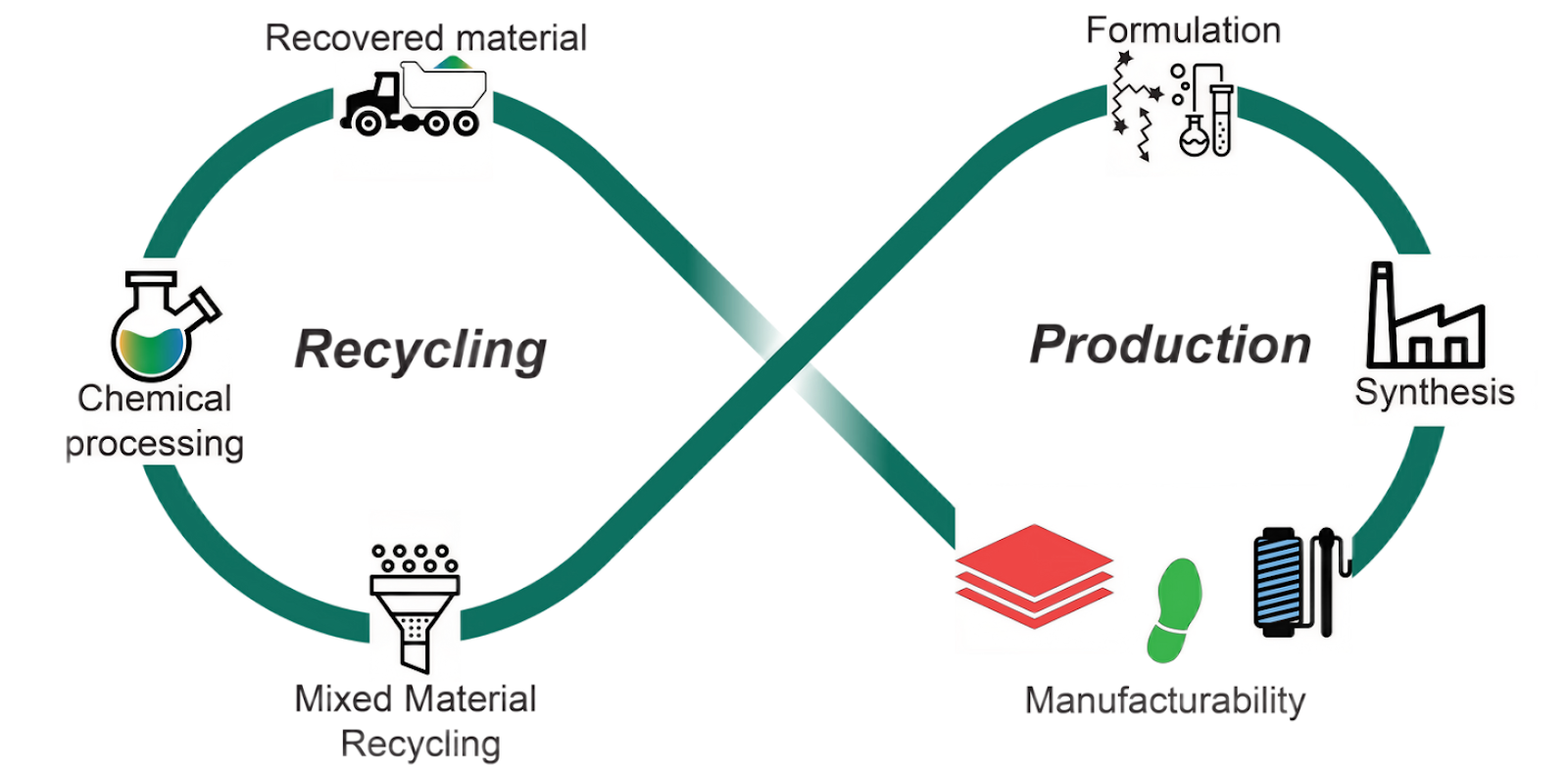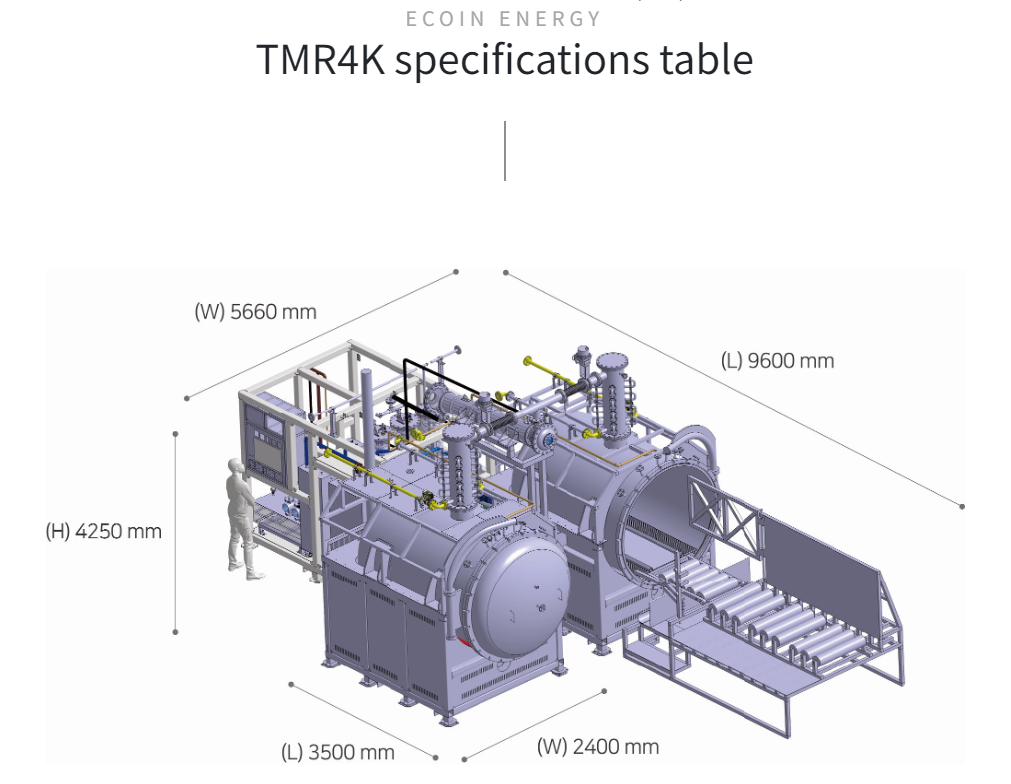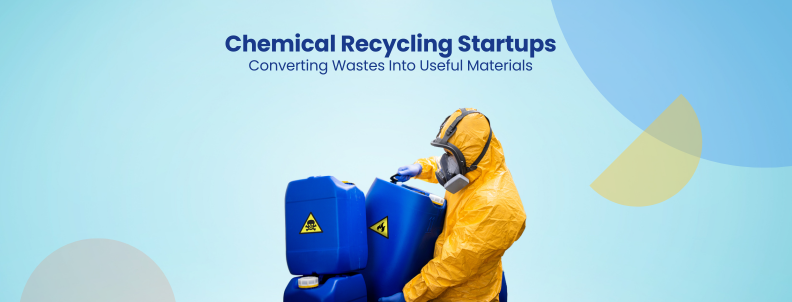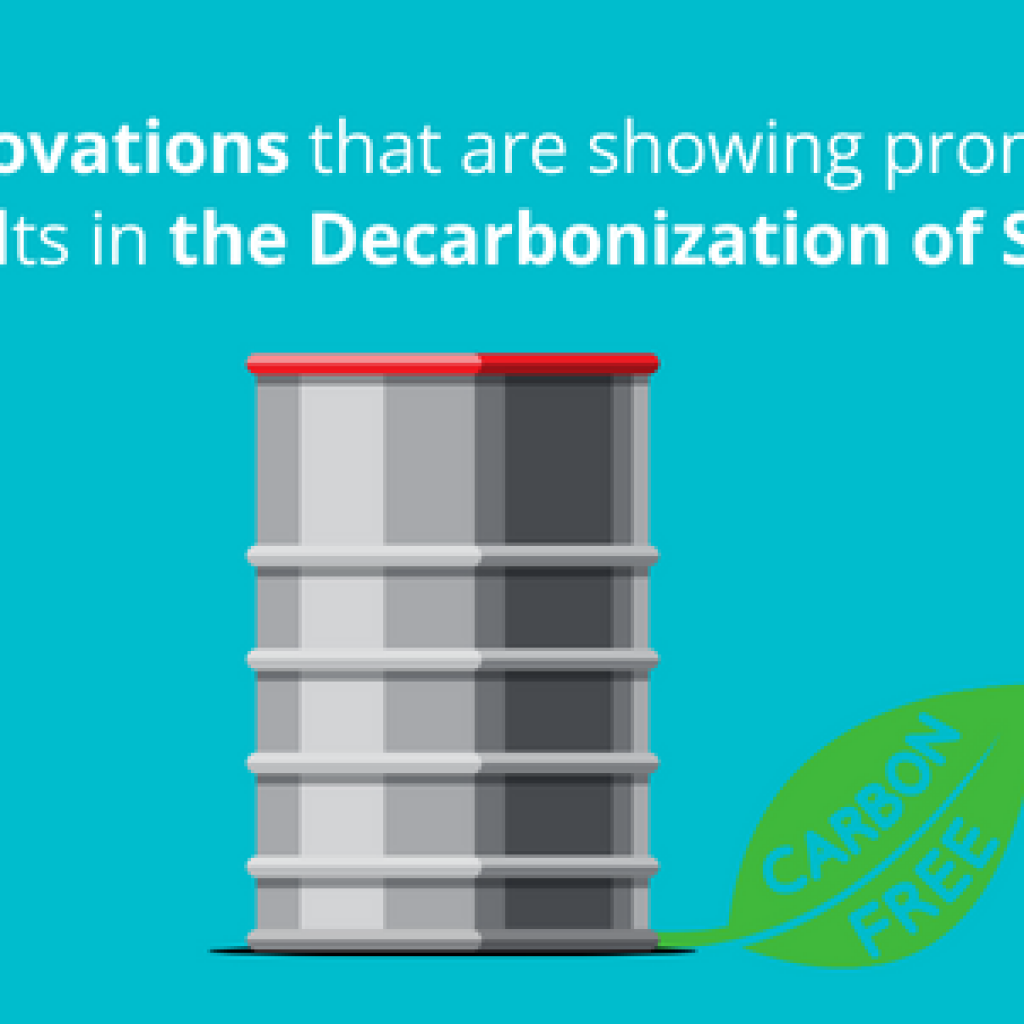Waste management has traditionally focused on landfilling, incineration, and mechanical recycling. While effective for volume reduction and basic material recovery, these methods often fall short in addressing the complexities of modern waste streams, particularly plastics and composite materials.
Landfills consume valuable land and can lead to environmental contamination, while mechanical recycling degrades the material quality, limiting the usability of the recycled products.
Chemical recycling is a transformative solution to these traditional methods. It breaks down polymers into monomers or other useful chemicals.
This technology helps recycle plastics that are currently considered non-recyclable due to contamination or material complexity. It offers a circular lifecycle for synthetic materials. Chemical recycling can reduce carbon emissions, waste to landfills and incinerators, and industries’ reliance on virgin materials.
This article highlights five early-stage startups that are changing waste management ways with solutions like chemical recycling. These startups have the potential to grow rapidly, are in a good market position, or can introduce game-changing technology to the market in the next 2-3 years.
This makes them a great option to partner, collaborate, or acquire.
Interested in Sustainable Coatings and their recent trends? Fill out the form to download the report:
1. Terrawaste And Its HTLOOP Converting Waste into Bio Materials
| Founding Year | 2021 |
| Headquarters | Rotterdam, Zuid-Holland, The Netherlands |
| Total Funding Amount | Undisclosed |
| Last Funding Round/Amount | Pre-Seed |
| Website | https://terrawaste.tech/ |
Waste materials, including plastic, organic, food waste, and sludge, end up in landfills, contributing to pollution and greenhouse gas emissions. Processing diverse, non-recyclable waste and managing negative environmental impact are major industry challenges. Also, the waste management industry aims to transform these waste streams into valuable, sustainable resources.
Terrawaste developed the ‘htloop’ technology to address these waste management challenges. It is a hydrothermal liquefaction (HTL) process that converts a wide range of waste materials into useful products.
This innovative technology operates under high pressure and temperature, converting waste into bio-crude oil, biochar, high-value chemicals, and organic raw materials.
The htloop system can process mixed and wet waste, including plastic and organic household waste, through a thermochemical conversion process. It generates bio-crude oil and other products through reactions like hydrolysis and decarboxylation.
Unlike traditional waste-to-energy systems, the htloop process occurs in a sealed, emission-free environment, preventing the release of gases and residues. It employs a continuous flow process that reuses heat and water, significantly reducing energy consumption.
Aija Pope is the CEO of Terrawaste, leading it toward success with her experience as part-time CEO of Crystals Growing SIA and co-creator of Baltic Boss Babes.
Terrawaste raised its last funding from a Pre-Seed round on Oct 3, 2022, led by Techstars.
2. FLO Materials Reducing Plastic With ECANs
| Founding Year | 2020 |
| Headquarters | California, United States |
| Total Funding Amount | Undisclosed |
| Last Funding Round/Amount | Seed |
| Website | https://www.flomaterials.co/ |
With over 400 million tons of new plastics produced annually and less than 10% being recycled, the world faces a critical issue of plastic pollution in oceans and landfills. Current recycling methods are inefficient and often compromise the material’s quality and limit its reuse, particularly in complex items like windmill blades, where only 80-85% is recyclable.
To tackle these challenges, FLO Materials developed a novel polymer platform called ECANs (Easily Convertible And Networkable polymers). These polymers are designed to be highly adaptable and capable of undergoing modifications from the initial synthesis to post-processing.
This technology allows for boundless recycling and reuse, maintaining or even exceeding the performance of newly sourced materials.
The startup’s advanced chemical recycling technology stands out for its low-energy, high-yield process, which efficiently extracts colors and additives from plastics. This process can create new form factors without compromising quality.

CEO Kezi Cheng leads this startup towards a green future with her extensive knowledge and team. She holds a Ph.D. from Harvard University and a B.Sc. from MIT.
FLO Materials raised the latest funding from a seed round on Oct 1, 2023.
Intrigued by these innovative startups?
Subscribe for more information on chemical industry startups that are solving the core challenges of your industry.

3. Terracle Using Depolymerization Technologies for Chemical Plastic Recycling
| Founding Year | 2021 |
| Headquarters | Pusan-jikhalsi, South Korea |
| Total Funding Amount | ₩ 10.5 Billion |
| Last Funding Round/Amount | Series A/₩ 10.5 Billion |
| Website | https://www.terracle.im/ |
Traditional waste management methods like incineration contribute to environmental degradation. The problem is further compounded by the difficulty of recycling certain types of plastic, particularly those that are colored or have adhesives. It increases landfill waste and greenhouse gas emissions.
A startup called Terracle developed a chemical recycling process centered around depolymerization technology. It breaks plastic polymers into monomers.
This process enables the recycling of various types of PET waste, including A-PET, I-PET, and polyester materials, regardless of color or adhesive content.
The technology allows for the production of high-purity regenerated terephthalic acid (CR-TPA), ethylene glycol (EG), and essential feedstocks for the plastic and textile industries.
Terracle’s approach differs from traditional recycling methods by operating at atmospheric pressure and temperatures below 60°C. These factors enhance energy efficiency and reduce the carbon footprint.
The process has a notable carbon reduction effect, achieving an 85% reduction compared to virgin TPA production and 70% compared to landfill or incineration methods.
The startup is under the leadership of the founder and CEO, Kibaek Kwon.
It raised the latest funding of ₩10.5 Billion from a Series A round on Mar 18, 2024, led by Envisioning Partners.
4. Ecoin Energy Decreasing Plastic Burden using Pyrolysis Emulsification
| Founding Year | 2015 |
| Headquarters | Taejon-jikhalsi, South Korea |
| Total Funding Amount | Undisclosed |
| Last Funding Round/Amount | Seed |
| Website | http://www.ecoinenergy.com/ |
Rapid industrialization and the inadequacy of traditional recycling methods are increasing plastic accumulation. This growing issue poses severe environmental threats, including pollution and the depletion of natural resources.
Ecoin Energy has developed the TMR4K, a portable industrial waste plastic pyrolysis emulsification device, to tackle these problems. This device utilizes pyrolysis emulsification technology to recycle waste plastic chemically. The result is pyrolysis oil with a conversion yield exceeding 60%.
The system is equipped with a real-time monitoring system integrated with IoT, capable of linking data from over 20 environmental sensors, ensuring efficient and controlled processing.
The technology processes waste vinyl and residual waste plastic, with a processing capacity of 4 tons per day and an average oil conversion yield of 60% to 65%. It also features a hybrid cooling system (air cooling plus water cooling) and produces carbide in the form of powdered coal (Carbon Black) as a residue.

CEO Lee In is leading this startup. Ecoin Energy raised its latest funding in a seed round on May 10, 2023.
5. Cyclize Formalizing Intermediate Chemicals from Waste Plastic with Plasma Technology
| Founding Year | 2018 |
| Headquarters | Stuttgart, Germany |
| Total Funding Amount | €4.8M |
| Last Funding Round/Amount | Seed/€4.8M |
| Website | https://cyclize.de/en/ |
The chemical industry relies heavily on fossil carbon sources, leading to significant CO2 emissions. With the rising demand for sustainable practices, solutions that can reduce these emissions and manage waste more effectively are needed.
Cyclize has developed a plasma-based technology that reformulates waste plastics into new intermediate chemicals, specifically synthetic gas (syngas), comprising hydrogen and carbon monoxide.
This process efficiently produces syngas through dry and steam reforming methods. It utilizes non-thermal plasma for gasification and subsequent reforming with steam or carbon dioxide.
The technology allows for the conversion of plastic waste into a valuable resource, potentially making the process carbon-negative when using carbon dioxide as a feedstock.
What distinguishes Cyclize’s technology from existing solutions is its ability to process mixed plastic waste of all kinds, transforming it into a high-quality synthetic gas that can economically compete with fossil-based syngas.
Co-founder and CEO Maike Lambarth is in charge of this startup. She has experience as a scientific associate at the University of Stuttgart.
Cyclize has raised €4.8M in funding from a Seed round led by UVC Partners on Feb 21, 2024.
Partner with cutting-edge startups to tackle your industry’s toughest challenges and stay on top of the competition.
Learn how GreyB can help you discover similar ventures that perfectly fit your needs.

Author: Naveen Kumar, Marketing.










